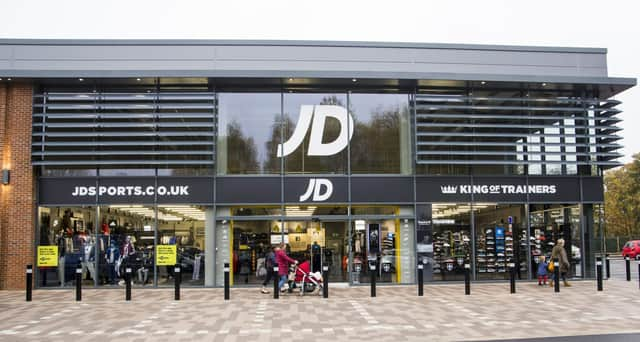Shocking ambulance call-out figures revealed for ‘satanic mill’ ASOS and JD Sports warehouses


ASOS and JD Sports have been accused of running their warehouses like “dark satanic mills” after figures were revealed showing the high number of ambulance call-outs to their sites.
Ambulances were called out a total of 45 times last year to an ASOS warehouse in Little Houghton near Barnsley, while there were 40 call-outs to a JD Sports facility in Rochdale.
Advertisement
Hide AdAdvertisement
Hide AdThe figures have reignited fears about working conditions at the companies’ warehouses, according to union Unite.


45 ambulance call-outs in just one year
Both employers have responded by saying that the safety of their workers is a high priority.
The figures, which were sourced through Freedom of Information requests by the Press Association, show that in the past three years the South Yorkshire ASOS warehouse had required ambulance call-outs 148 times.
The Greater Manchester JD Sports location has had 117 call-outs in the same time period.
‘Dark satanic mills of the 21st century’
Advertisement
Hide AdAdvertisement
Hide AdResponding to the figures, Matt Draper, from Unite, said, "The warehouses of some companies risk becoming the dark satanic mills of the 21st Century.
“It doesn’t have to be this way though. Where employers work with trade unions and treat people with respect there are fewer accidents and a better health and safety record.”
Neil Derrick, GMB regional secretary, said ASOS bosses "appear to be in denial about the inhumane conditions people have to work under" at the Barnsley warehouse.
He said, "They are making millions while workers are literally being taken away in ambulances."
Not the first working conditions scandal
Advertisement
Hide AdAdvertisement
Hide AdWhile the most high-profile scandal in recent years involved Mike Ashley’s Sports Direct - whose Shirebrook site in Derbyshire was described as a “Victorian workhouse” by unions - JD Sports has faced fierce criticism.
The sports company, which headed by chairman Peter Cowgill, was forced to launch an investigation in 2016 into conditions at Rochdale when an undercover film showed staff allegedly paid less than the minimum wage and treated “like cattle”, in the words of former MP, Iain Wright.
The statistics, sourced by Press Association, do not explain the reasons for the call-outs, however previous reports of poor warehouse working conditions include timed toilet breaks and exhausting targets.
There were also reports of employees falling asleep at some packaging plants after being forced to work overtime.
Advertisement
Hide AdAdvertisement
Hide AdASOS had 45 ambulance call-outs to its South Yorkshire warehouse.
Tesco and Amazon also implicated
Among the other retailers included in the data, 40 ambulances were called to Tesco's sites in Milton Keynes, Didcot and Reading last year.
A total of 21 ambulances were called to the Amazon warehouse in Warrington in 2018, six to the online giant's site in Doncaster, and one to its Water Vole Way unit in the town.
However, the number of ambulances called out to the Sports Direct Shirebrook site has dropped dramatically since its scandal a few years ago.
Advertisement
Hide AdAdvertisement
Hide AdVeteran MP Frank Field told the Press Association that the figures give a glimpse into the "appalling conditions to which the soft human underbelly of Britain's labour market is exposed".
‘Should have been left in the Victorian era’
"This sort of thing should have been left behind in the Victorian era,” Field added.
"We desperately need a new employment rights Bill to protect these vulnerable workers from yet more exploitation at the hands of some of our country's largest employers."
A JD Sports spokesperson responded to the figures by saying that given the scale of the company’s operations, the number of ambulance call-outs was “proportionally very low.”
Advertisement
Hide AdAdvertisement
Hide AdASOS and XPO Logistics, which runs the Barnsley site on its behalf, said, "We are a responsible employer that values the safety and the welfare of our 4,500 site employees above all else.
“Because of that commitment, it is our policy to call an ambulance whether a situation is work-related or not, often as a precaution.”
This article originally appeared on our sister site, The Yorkshire Post